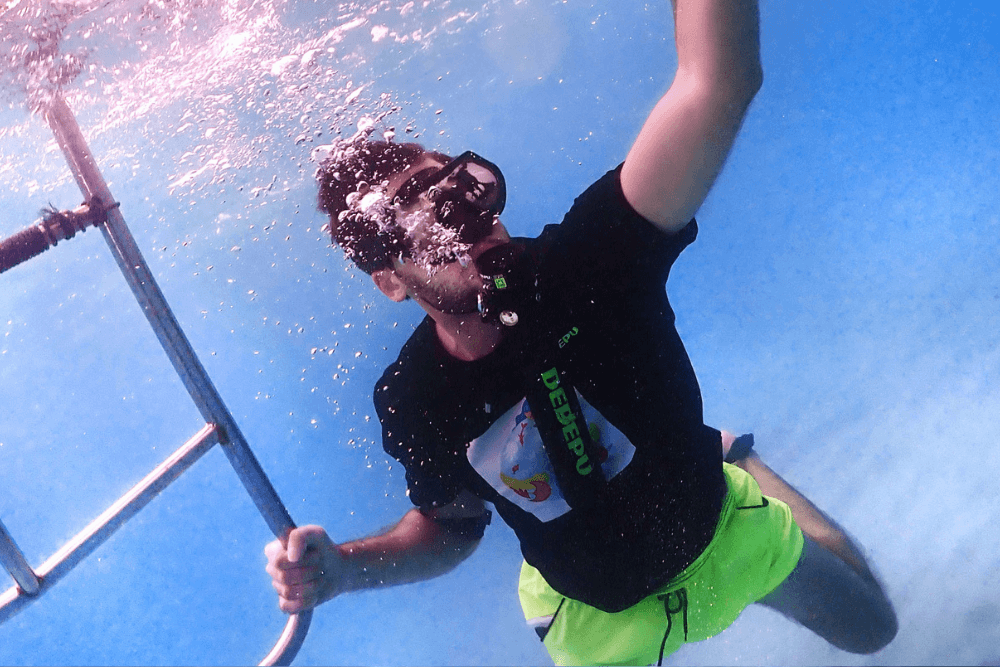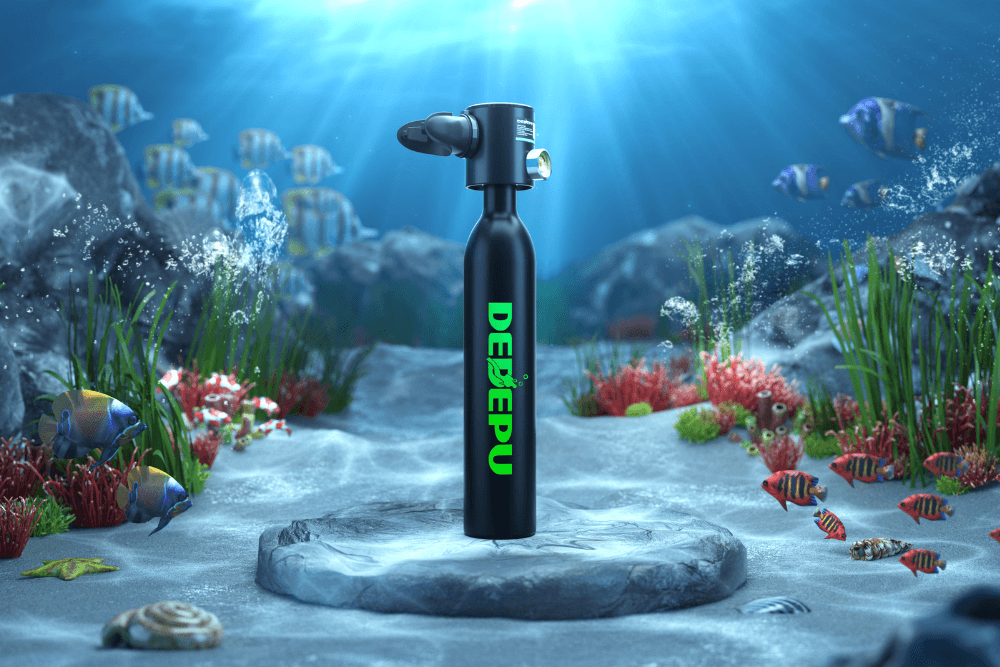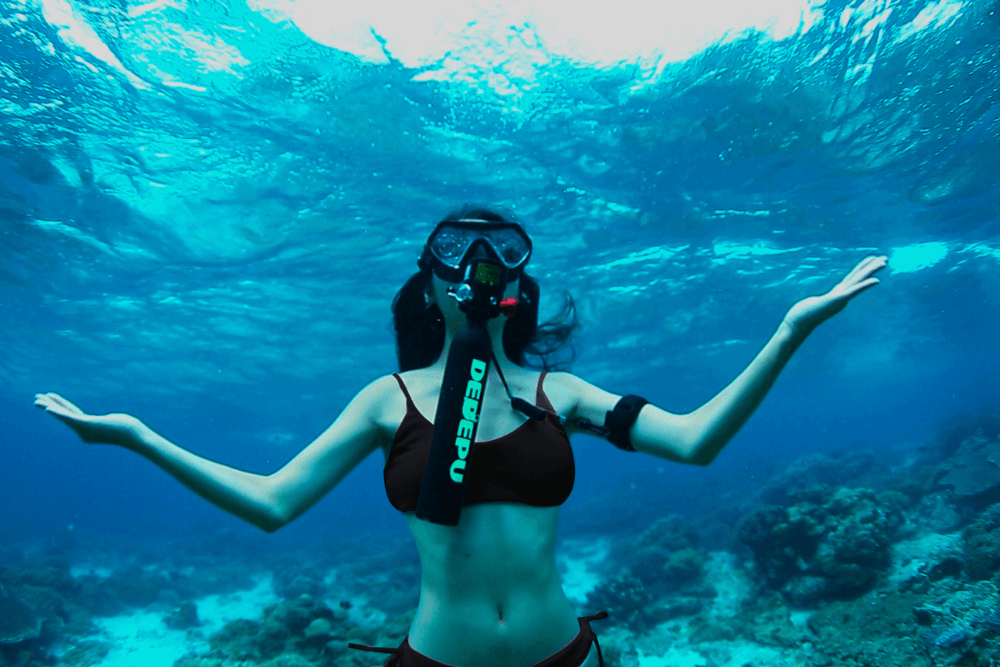"Individuals with certain medical conditions, such as heart disease, asthma, or pregnancy, should avoid scuba diving due to risks like pressure changes and oxygen toxicity. Those under 10 years old or lacking proper training (only 1 in 5 beginners complete certification) are also unsuitable. Always consult a doctor before diving." (60 words)
Health Conditions to Avoid
Around 15-20% of dive-related incidents are linked to pre-existing health problems. For example, heart disease accounts for nearly 25% of diving fatalities, while asthma increases the risk of lung barotrauma by 3-5 times. Pregnant women are advised against diving due to potential harm to the fetus from nitrogen bubbles. Other high-risk conditions include uncontrolled diabetes, epilepsy, and chronic ear/sinus issues.
Key Conditions That Disqualify Divers
A study by DAN (Divers Alert Network) found that over 40% of diving deaths involved cardiovascular issues. High blood pressure (above 160/100 mmHg) can lead to underwater emergencies, and coronary artery disease increases the chance of a heart attack during exertion. Even mild arrhythmias can become life-threatening at depth due to gas narcosis.
Asthmatics face a 5-10% higher chance of air trapping, which can cause lung rupture. Those with active respiratory infections (even a cold) should postpone diving—sinus blockages increase the likelihood of barotrauma by 30%.
Seizures underwater are almost always fatal—less than 10% of affected divers survive. Similarly, uncontrolled migraines or recent brain injuries can impair judgment and reaction time.
Well-managed Type 2 diabetics may dive if their HbA1c is below 9% and they have no complications. However, hypoglycemia underwater is deadly—15% of diabetic divers report at least one low-blood-sugar episode while diving.
About 20% of beginner divers experience ear injuries due to poor equalization techniques.
When to Get Medical Clearance
For example, asthmatics must pass a spirometry test (FEV1 > 80% predicted) to be cleared. The cost ranges from 300, but it’s a small price for safety.

Age and Fitness Limits
The youngest certified divers are typically 10 years old, but studies show that kids under 12 have a 30% higher risk of equalization problems due to underdeveloped ear canals. On the other end, divers over 60 account for 22% of decompression sickness cases, partly due to slower circulation and reduced lung elasticity. Fitness matters just as much—40% of dive emergencies involve exhaustion or poor physical conditioning. If you can’t swim 200 meters without stopping or tread water for 10 minutes, you’re not ready for open water.
How Age Affects Diving Ability
Most agencies limit them to 12 meters (40 feet)—half the standard recreational limit. Their higher metabolic rate increases nitrogen absorption, raising the risk of decompression illness (1.5 times compared to adults). Parental supervision isn’t enough; 85% of youth dive incidents happen when inexperienced teens dive beyond their training.
Adults (30-50 years) are in the safest range, with only 15% of dive accidents occurring in this group. However, sedentary lifestyles change things. A diver who can’t climb three flights of stairs without breathlessness has twice the risk of panic underwater. Obesity (BMI > 30) complicates buoyancy control and increases air consumption by 25%, cutting dive times short.
Seniors (60+ years) face higher risks, but not automatically disqualifying ones. Arthritis reduces mobility for finning, and reduced cardiac output makes exertion riskier. Yet, fit older divers with normal blood pressure and no lung disease can dive safely. The key is a stress ECG test—80% of age-related dive fatalities involve undiagnosed heart conditions.
Fitness Benchmarks for Safe Diving
You don’t need to be an athlete, but minimum strength and stamina are non-negotiable. Here’s what matters:
- Swim Test: 200 meters non-stop (any stroke), or 300 meters with snorkel/fins. 20% of failed certifications are due to poor swimming.
- Treading Water: 10 minutes without support. Strugglers are 3x more likely to panic in currents.
- Cardio Health: A resting heart rate below 100 bpm and recovery to <120 bpm within 5 minutes post-exercise.
- Strength: Ability to carry 20 kg (44 lbs) of gear for 5 minutes—50% of shoulder injuries happen during kit handling.
Training and Experience Needed
Data from dive agencies shows that 75% of serious accidents involve divers with fewer than 20 logged dives, and 40% of those happen during the first open-water dive after certification. The average Open Water Diver course takes 3-4 days and costs 600, but the real learning starts after certification. Divers who complete at least 5 supervised dives in their first year reduce their risk of accidents by 50%. Meanwhile, those who skip refresher courses after 6 months of inactivity are 3 times more likely to make critical errors underwater.
What Training Actually Covers (And What It Doesn’t)
But here’s the catch: most new divers only retain 60% of what they learn if they don’t practice within the first month. The course includes 5 confined water sessions and 4 open-water dives, but that’s barely enough for real-world conditions. For example, strong currents (over 1 knot) aren’t typically covered, yet 30% of divers panic when caught in unexpected flow.
Advanced certifications (like Advanced Open Water) add depth (up to 30 meters/100 feet) and navigation skills, but only 25% of divers take this within their first year. That’s a problem because low visibility (less than 3 meters) causes 45% of navigation failures, and deep dives require slower ascents to avoid decompression sickness. Specialty courses (wreck, night, drift diving) help, but most divers wait 2-3 years before taking them—by then, bad habits are already set.
Experience vs. Certification: What Matters More?
A diver with 50 warm-water reef dives may struggle in cold, low-visibility conditions, where 70% of equipment failures occur. The best way to build real skill is varied environments—shore dives, boat dives, day and night dives. Divers who do at least 10 dives per year maintain competency, while those averaging fewer than 5 see a 40% drop in safe practices.
A Divemaster (50+ dives required) can guide certified divers, but only a full Instructor (100+ dives) can certify new divers. Yet, 15% of dive shops let inexperienced Divemasters lead groups beyond their training—a leading cause of buddy separation incidents.
The Cost of Skipping Training
The cheapest certification (under $300) often cuts corners—smaller classes (6:1 student-to-instructor ratio max) are safer, but budget courses sometimes go 10:1. Divers who train in cold or murky water (like quarries) adapt better to challenges, but 85% of new divers opt for easy tropical conditions first.
Refresher courses (usually 150) are ignored by 60% of casual divers, yet 80% of post-accident reviews show that a refresher could have prevented the incident.

Medications and Diving Risks
Popping a pill before diving might seem harmless, but 20% of dive-related medical emergencies involve medication side effects. A DAN study found that 35% of recreational divers take at least one prescription drug, with 12% using medications that impair judgment or physical ability underwater. Common culprits include antihistamines (causing drowsiness in 30% of users), decongestants (increasing heart rate by 15-20 bpm), and painkillers (masking symptoms of decompression sickness). Even over-the-counter drugs like ibuprofen can thin blood, raising the risk of lung barotrauma by 25% in deep dives. The scary part? 60% of medicated divers don’t consult a doctor before diving—a gamble with potentially fatal consequences.
How Medications Mess with Diving Physiology
They slow reaction times by 40-60%, making it harder to handle emergencies like free flows or entanglements. Antidepressants (SSRIs) are trickier—while some divers manage well, 15% report dizziness or confusion at depth due to pressure-induced serotonin changes.
Beta-blockers (like metoprolol) reduce exercise tolerance, leaving divers 50% more likely to exhaust themselves during strong currents. ACE inhibitors, however, are generally safe if blood pressure stays below 140/90 mmHg during a stress test.
They constrict blood vessels, which can spike blood pressure by 20 mmHg at 30 meters—dangerous for divers with undiagnosed hypertension. Worse, rebound congestion after they wear off causes 30% of ear barotrauma cases on ascent.
Ibuprofen increases nitrogen bubble formation by 18% in animal studies, while opioids depress respiration, raising CO₂ retention risks by 3x. Post-dive soreness? Acetaminophen is safer, but only if you’re hydrated—dehydration + depth = kidney strain.
The Hidden Dangers of Supplements
Melatonin users report 25% more disorientation during night dives. St. John’s Wort (a mood booster) makes skin 50% more sensitive to UV, worsening sunburn on surface intervals. Fish oil thins blood, which isn’t ideal if you’re diving with unhealed cuts or bruises.
Rules for Medicated Divers
- Check half-lives: If a drug’s effects last >12 hours, skip diving for 24 hours after the last dose.
- Pressure-test new meds: Try them on land first—10% of divers discover side effects (like dizziness) only underwater.
- Hydrate aggressively: Diuretics (e.g., Lasix) or stimulants (Adderall) dehydrate you 3x faster at depth.
Final Advice
Get a doctor’s clearance—it costs 200 but prevents $50,000+ in hyperbaric chamber bills. If you’re on multiple meds, log 5 shallow dives (<12m) before going deeper. And always disclose your meds to your dive buddy—secrecy kills.
When to Skip a Dive
Canceling a dive feels like wasting money, but 25% of diving fatalities happen because divers ignored clear warning signs. DAN reports that 60% of preventable accidents could have been avoided if someone had just said "no." Whether it's bad weather (responsible for 40% of aborted dives), equipment issues (30% of last-minute cancellations), or just not feeling right (15% of near-misses), knowing when to bail is as crucial as any diving skill. The average diver loses 300 per skipped trip, but that's nothing compared to $30,000+ for emergency decompression treatment—or worse.
Physical Red Flags You Can't Ignore
Fatigue isn’t just being tired—it’s a 12% slower reaction time and 20% higher air consumption. If you needed caffeine or painkillers to wake up, you’re already at a 35% higher risk of poor decision-making underwater. Dehydration is even sneakier: a 2% body water loss (easy in tropical heat) thickens blood, increasing nitrogen bubble formation by 15%.
If you can’t equalize within the first 3 meters, you’re 5x more likely to rupture an eardrum. Cold symptoms, even mild ones, swell nasal passages—45% of divers with congestion end up with reverse block on ascent.
At depth, swelling increases 30% due to pressure changes, making it harder to kick efficiently. Stitches or unhealed wounds risk infection from marine bacteria—saltwater isn’t a disinfectant.
Gear Problems That Demand a "No-Go"
Regulator malfunctions cause 22% of out-of-air emergencies. If your second stage free-flows during pre-dive checks, don’t "fix it on the way down"—80% of these worsen below 10 meters. Mask straps older than 2 years snap 40% more often, and a flooded mask at 18 meters can trigger panic in under 10 seconds.
A 5mm suit in 28°C water overheats you 3x faster, while a too-loose drysuit can cause uncontrolled ascents. Boots with worn soles slip on 50% of boat ladders, the #1 site for pre-dive injuries.
Environmental Dealbreakers
Currents over 1.5 knots exhaust divers twice as fast as predicted. If the divemaster says "it’s manageable," but you’ve only done 5 dives total, sit this one out—70% of drift-diving accidents involve novices.
Visibility below 3 meters turns navigation into guesswork. Divers who proceed anyway get separated from buddies 60% of the time. Thermoclines (sudden temperature drops) shock the body—a 5°C plunge at 15 meters spikes heart rates by 25 bpm in unfit divers.
Jellyfish blooms increase stings by 300% in summer months, and fire coral brushes cause infections that take 3 weeks to heal.
The "Gut Feeling" Factor
50% of divers admit to diving when uncomfortable because they didn’t want to "look weak." But here’s the truth: skilled divers cancel 1 in 8 dives—it’s part of the sport. If your brain says "maybe not," your mouth should say "not today."
Final Advice
Before every dive, ask:
- Am I physically 100%? (No coughs, aches, or exhaustion)
- Is my gear 100%? (No "it’ll probably work" fixes)
- Are conditions 100% right for my skill level? (No "I’ll manage" lies)





Leave a comment
All comments are moderated before being published.
This site is protected by hCaptcha and the hCaptcha Privacy Policy and Terms of Service apply.